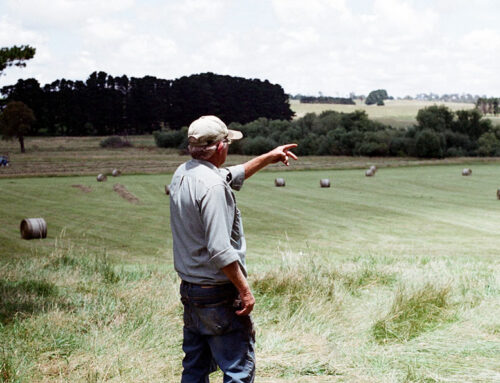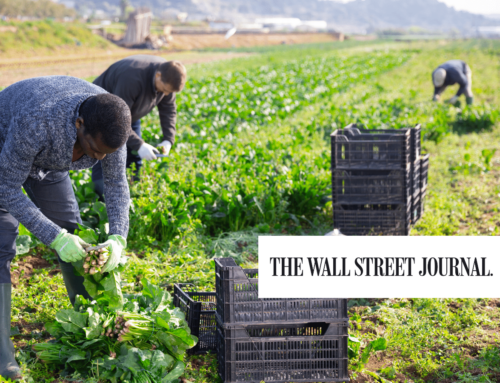Lawmakers returning from the campaign trail have some work to do before the next Congress begins January 3, 2019.
The 2014 Farm Bill expired on September 30 without any clear date for reauthorization. Now that Congress is back in lame-duck, the Farm Bill conference committee is feverishly working to marry two wildly divergent bills.
Any farm bill agreement must strengthen common sense subsidy limits on farm bill commodity programs. The Senate version of the 2018 Farm Bill included a provision by Senator Grassley to close a loophole that allows unlimited numbers of “managers” to be added to a farm entity in order to qualify for taxpayer subsidies. Including this provision in the 2018 farm bill ensures the farm safety net is focused on individuals facing the day-to-day risks of farming, not those choosing to farm the programs. Congress must close the subsidy loophole in order to rein in unnecessary spending and ensure taxpayer dollars are spent wisely.
For more information on the active management loophole see our fact sheet.
You can also read the letter of support from taxpayer and free market organizations – including Taxpayers for Common Sense – by PDF or below.
As 2018 Farm Bill negotiations continue, the taxpayer and free market groups below and on the letter attached, wish to remind conferees to include language in the Senate-passed version of H.R. 2 that would better focus taxpayer-funded commodity payments to those farm businesses that need them most. Specifically, Sections 1704, 1705, and 1706 would help ensure payments go to only those actively involved in (and therefore dependent on income from) farming operations. The provisions also modestly reduce the income eligibility threshold to $700,000 per individual or $1.4 million per married couple.
Our groups have long advocated for these smart reforms that reflect our shared goals of fiscal and individual responsibility. As taxpayers face growing deficits and USDA embarks on trade mitigation direct payments, these restrictions are all the more urgent. To that end, we are re-releasing our letter of June 13 which provides additional information on these critical changes, without which any farm bill product will fall short. In addition, please find statements below from each organization:
“Placing a hard cap on commodity program payments and closing current loopholes that benefit select businesses based on their legal organization or commodity specialization is a logical step in a 30-year Congressional odyssey to focus federal farm programs on actual farmers. Farm bill negotiators must maintain these bipartisan reforms in a final package in order to bring integrity and fiscal responsibility to federal farm policy.”
Ryan Alexander, President, Taxpayers for Common Sense“The looting of taxpayers to pay farm subsidies to non-farmers is a national scandal. Conferees should stand up for taxpayers and include the Grassley Amendment in the farm bill conference agreement.”
Phil Kerpen, President, American Commitment“At a time when our nation’s economic future is threatened by sky rocking federal deficits it is mind boggling that any member of Congress would object to stopping some millionaire farmers- many of whom are not even full-time farmers— from receiving federal farm subsidies.”
Norman Singleton, President, Campaign for Liberty“The Farm Bill represents one of the largest chunks of discretionary expenditures, and ensuring that resources go to those who need it most is a critical part of both fiscal sanity and good governance. With a $21 trillion national debt, taxpayers cannot afford anything less.”
Jonathon Bydlak, President, Coalition to Reduce Spending“Members of Congress must explain why this farm bill is not reining in out-of-control subsidy programs and closing special interest loopholes. This legislation continues to benefit the wealthy at the expense of family-owned farms which are being left behind. Multimillionaires, billionaires, hedge funds and multinational corporations own more than half of America’s farmland and rent it to farmers. These mega wealthy elites may own the land used in agricultural production, but they are not actively involved in the farming process. Because there is no means test for who can get crop insurance subsidies, these rich landowners get taxpayer funded subsidies which only encourages them to buy more and more farmland to increase their government sponsored profits. This makes it almost impossible for young farmers to buy their own farmland as they are immediately priced out of the market.”
Allen Benjamin Johnson, III, Director of Government Affairs, Council for Citizens Against Government Waste“As our nation approaches trillion dollar deficits, it is vitally important to take a hard look at our wasteful spending habits. The millions in subsidies in the Farm Bill that go to special interests and businessmen who have never spent time on an actual farm is a prime example of this. As the Farm Bill conferees consider a final bill, they should cut back on this waste and, at the very least, make sure this spending is directed towards honest, small farms.”
Jason Pye, Vice President of Legislative Affairs, FreedomWorks“Without reforms that limit commodity payments to actively engaged farmers and reinforce means-testing, unaffordable payments will continue to flow to wealthy individuals and corporations that don’t live or work on farms. This type of crony capitalism distorts agribusiness decisions and undermines efforts to promote the value of work and work requirements. As payments on the debt threaten to overtake even defense spending, taxpayers simply can’t afford a farm bill that doesn’t make these critical changes.”
Nan Swift, Director of Federal Affairs, National Taxpayers Union“If Republicans are serious about ending corporate welfare and cutting waste they should start with reforming our farm support system, which currently allows millionaires and billionaires who don’t even live or work on a farm to collect up to $125,000 each year in subsidies. Senator Grassley’s amendment is a commonsense reform that will close this loophole. With rising deficits and uncertainty in farm country, there are many tough decisions Members of Congress must make. Ending farm subsidies for non-farmers should be an easy one.”
Caroline Kitchens, Federal Affairs Manager, R Street“For too long, federal farm policy has benefited select commodity producers and rich agribusinesses at taxpayers’ and consumers’ expense. With hard caps on payout limits and the closing of loopholes, these provisions will go a long way toward restoring sanity to the process.”
Grace Morgan, Director of External Relations, Taxpayers Protection Alliance











Get Social